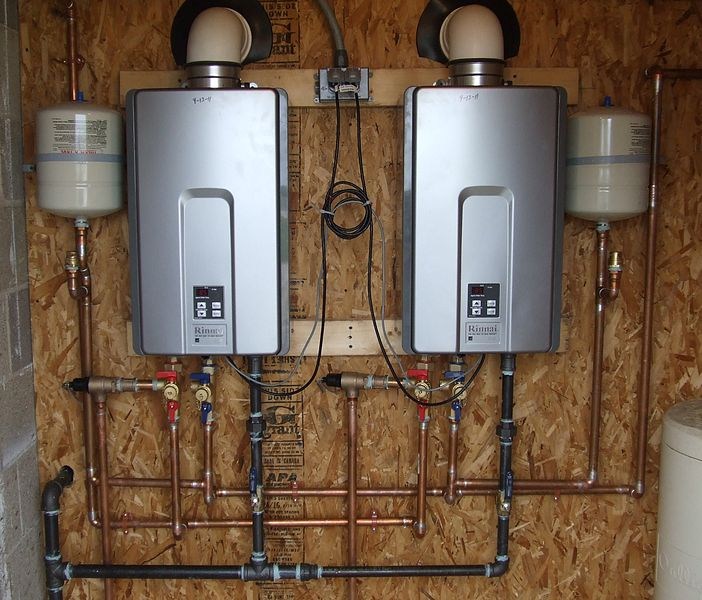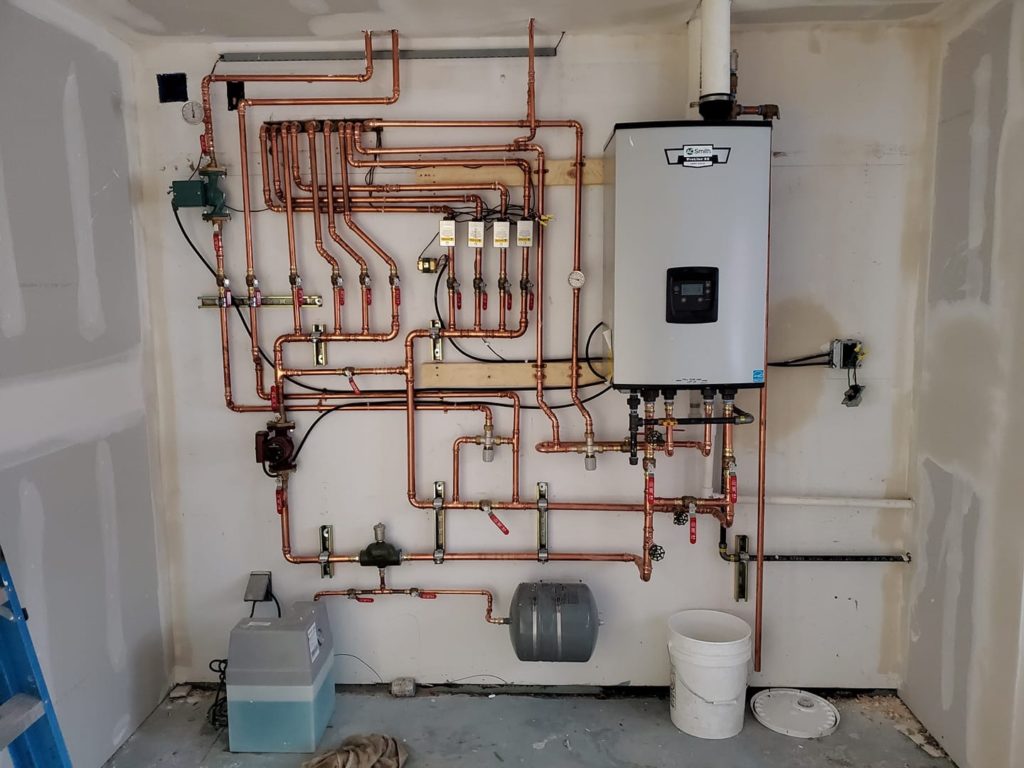Full Guide to Water Heating UnitInstallment and Substitute
Recognizing the intricacies of water heater installation and replacement is essential for homeowners seeking to ensure effectiveness and dependability in their hot water supply. From selecting the ideal type and dimension to carrying out a seamless installation procedure, numerous elements need to be thought about to avoid usual challenges.
Sorts Of Water Heating Systems
When thinking about hot water heater setup and replacement, it is essential to recognize the numerous kinds of water heating systems offered out there. One of the most common kinds include tank hot water heater, tankless water heating units, heatpump hot water heater, and solar water heating systems.
Storage tank hot water heater are conventional systems that store a details volume of warm water, making them conveniently offered when needed. They are typically less costly upfront yet may sustain greater power expenses over time because of heat loss. On the other hand, tankless water heating systems give hot water as needed, eliminating the demand for storage. They are energy reliable and can save area, yet their preliminary prices are commonly higher.
Warmth pump water heaters use electricity to transfer heat from the air or ground to heat water, providing substantial energy financial savings yet calling for more area and particular installment problems. Solar water heating units harness solar power to heat water, giving a green alternative with prospective lasting cost savings, although they commonly call for a backup system for cloudy days.
Recognizing these alternatives makes certain educated decisions concerning installation and substitute, satisfying particular needs and choices.
Selecting the Right Size
Picking the ideal dimension for a hot water heater is essential to ensure optimum efficiency and performance. A system that is as well little will certainly have a hard time to satisfy home needs, causing inconsistent warm water schedule and increased power consumption. Alternatively, a large water heater can cause unnecessary power waste and higher energy bills.
To determine the right size, consider the family's peak warm water usage. This can be computed based on the variety of occupants and their normal warm water demands. A household of four might require a water heating unit with a capability of 50 to 80 gallons, depending on the usage patterns, such as simultaneous showers and laundry.
In addition, examine the recuperation rate, which gauges just how rapidly a heating unit can restore hot water after it has been used. For tankless designs, emphasis on the circulation rate, measured in gallons per min (GPM), to guarantee it fulfills the household's simultaneous demand.
:max_bytes(150000):strip_icc()/replacing-a-water-heater-1824920-hero-20747e5013dd49ef8e7bd63c2bf5c386.jpg)
Installment Process Review

Next, the old device should be disconnected and gotten rid of, making sure to follow regional codes and regulations concerning disposal. As soon as the old unit is out, the new water heater can be positioned in position. This step involves attaching the water lines, ensuring that all fittings are secure and leak-free.
After developing water links, it's necessary to attach the power supply, whether electric or gas, following the producer's guidelines carefully. Once all connections are made, the system must be loaded with water, and the power can be transformed back on. Ultimately, it is necessary to examine for leaks and guarantee the water heating system is operating correctly before finishing the installation process.
Usual Installment Errors

An additional frequent mistake is ignoring to follow neighborhood codes and laws. Stopping working to adhere to these criteria can not only lead to safety and security threats but may also result in costly fines or the requirement for costly reinstallation.
Failing to secure connections or utilizing the wrong kind of fittings can lead to leakages and water damage. By preventing these usual installation errors, homeowners can guarantee their water heating unit runs safely and efficiently, making the most of efficiency and durability.
Upkeep Tips for Durability
Proper upkeep of a water heater is important for its durability and ideal performance. Regular assessments and servicing can prevent costly fixings and prolong the appliance's life-span. Begin by inspecting the temperature level setting; it should commonly be established between 120 ° F and 140 ° F for optimum power efficiency and safety.
Every 6 months, purge the container to get rid of sediment buildup, which can harm home heating efficiency and trigger deterioration. To do this, turn off the heating system, link a hose to the drain shutoff, and let the water run until it is clear.
Anode poles ought to be inspected every year and changed when they are corroded. These rods assist i was reading this protect against tank rust by bring in corrosive aspects in the water.
In addition, examine the pressure safety valve regularly to guarantee it is working appropriately. This valve is important for stopping too much stress buildup within the tank.
Finally, take into consideration scheduling an expert upkeep check every couple of years for complete assessments and maintenance. By sticking to these upkeep pointers, house owners can considerably improve the performance, safety, and lifespan of their hot water heater, making certain dependable hot water for years to find.
Verdict
In final thought, correct setup and upkeep of water heating units are critical for making certain efficiency and long life. By recognizing these necessary aspects, home owners can achieve a trusted hot water supply while decreasing potential problems related to water heating unit procedure.
Understanding the ins and outs of pipe repair water heater setup and replacement is important for home owners seeking to make sure effectiveness and reliability in their hot water supply.Storage tank water heating systems are conventional systems that keep a specific volume of hot water, making them conveniently available when needed. In comparison, tankless water heating systems provide warm water on need, eliminating the demand for storage. Picking a water heater that is either also tiny or too large can lead to ineffectiveness, resulting in poor warm water supply or too much power consumption.
By comprehending these necessary facets, homeowners can achieve a reputable warm water supply while decreasing potential issues related to internet water heater operation. drain cleaning.